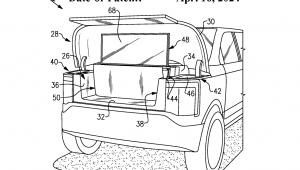Bluetooth Headphones: You’re Killing Me

According to a study by The NPD Group, which studies such things, for the first half of the year, Bluetooth headphones accounted for 54 percent of the U.S. dollar sales of headphones. Yes, you read that correctly: Dollar sales of Bluetooth headphones surpassed sales of wired headphones. Moreover, dollar sales of Bluetooth headphones increased 42 percent year over year, while wired headphone sales rose only 7 percent. It’s true that Bluetooth still only accounts for 17 percent of units sold, but the trend is unmistakable. More and more people are ditching their wired headphones and buying Bluetooth headphones.
That deeply distresses me, and I’ll tell you why. The problem, of course, is the sound quality—not necessarily the fidelity of the headphones themselves, but the quality of the Bluetooth connection. Phones and other digital music players have digital-to-analog converters on board. While not all of them are uniformly good, some of the converters are really excellent, with world-class audio performance specifications. When you plug a wired headphone into the output jack, you have a direct connection to a very high-quality analog signal. If the transducers are up to snuff, you can enjoy extremely good audio quality.
A Bluetooth headphone is another kettle of fish altogether. That really good converter in your phone is bypassed. Instead, A2DP Bluetooth data is broadcast via a radio link to whatever converter is in the headphone. Moreover—and this is important—that link is constrained to very low bit rates. As a result, your audio signal must be data compressed.
Bluetooth audio streaming generally uses the A2DP profile. Its default is the SBC codec; this is known as a “low complexity codec, and as the name suggests, it’s cheap, and it sounds like it. A2DP can optionally support codecs such as MP2, MP3, AAC, HE-AAC, and ATRAC as well as manufacturer-defined codecs such as aptX. The latter is an improvement, but it’s still a data-compression codec, and it’s still bit-constrained.
When you listen to Bluetooth headphones, you’ve inserted an MP3-like encode/decode stage into your signal path.
Let’s consider the widely used SBC codec. Implementations differ, but if you’re lucky, your stereo device, for example, might be operating in a “high fidelity” mode with a bit rate of 328 kilobits per second. However, you might be stuck with the lower-quality modes of 229 kbps or 201 kbps. Bottom line: When you listen to Bluetooth headphones, you’ve inserted an MP3-like encode/decode stage into your signal path. That’s a far cry from the straight wire of a wired headphone. It’s even worse if your files are already data-compressed; putting multiple codecs in tandem is a surefire way to achieve weird audio artifacts.Bluetooth speakers have the same issue, but it’s not as troubling because the low quality of the speakers themselves is usually the limiting factor, not the connection. But a good pair of headphones can provide awesome sound quality. With this bottleneck in place? Not so much. Even worse, consider those sale numbers—the relatively high price point of Bluetooth headphones means that the mass market of cheap earbuds is unaffected; it’s the more expensive, high-quality wired headphones that are being displaced. Bluetooth is wiping out high-fidelity headphones, while leaving low-fidelity earbuds unmolested. That is the worst possible outcome.
After all the effort to avoid data compression when it’s not necessary, after all the effort to promote lossless music files, after all the effort to put high-quality converters into phones, the convenience of ditching headphone wires is undoing all of that. It’s killing me. It’s just killing me.





























































